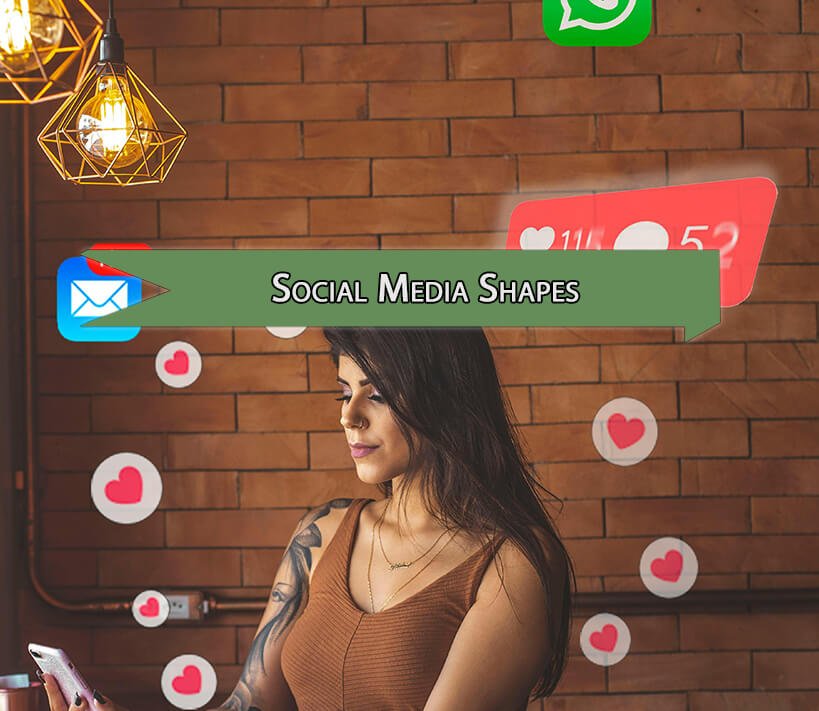When you post a photo on social media, and within seconds the likes start rolling in, your phone buzzes. The post you just made 10 minutes ago is already getting attention. In that moment, you feel a rush, a warmth, a sense of affirmation, maybe even a little addicted. This is how social media shapes our emotions and self-worth. Your happiness shows on your face, and with every smile, you feel validated.
Then, almost without realising it, you open the app again just two minutes later, checking if there a new like. Sounds familiar? Thats because most of us have experienced this psychological loop. What seems like a harmless act reveals something more profound, a powerful loop that millions are caught in every single day. This addiction to likes, hearts, claps, or views is not just a social habit. It is a chemical response, rooted in the brain reward system and our fundamental need for social approval. At Psychoaura, we explore the hidden science behind these everyday patterns, so you can break free from what controls you.
The Dopamine Trap
Every like triggers a minor release of dopamine, the brain “feel good” chemical. Platforms like Instagram, Facebook, and TikTok are intentionally designed to keep us hooked, encouraging endless scrolling. This is not so different from a casino slot machine. You do not know how many likes you will get or when they will come, and that unpredictability makes the process even more addictive.
Psychologists call this a variable reward, a reinforcement schedule where the reward is random but possible. That is precisely why you find yourself constantly refreshing, rechecking, and scrolling habit on social media, even when you are tired or busy. This is one of the key ways social media shapes our behaviour, keeping us engaged and craving the next hit of validation.
When Likes become a Measure of Worth
The problem begins when we start tying our self worth to the number of likes we get. When we begin to think, “I need to look good enough in this photo to get a thousand likes,” or when we look at a precious post and think, “Maybe it did not get enough likes because I did not look good,” that when the mental pressure starts building, and it becomes harmful.
This mindset is especially damaging for teenagers and young adults. Instead of focusing on who they are, they begin to obsess over how they appear online. The more lies they get, the more “seen” and valued they feel. But when the likes do not come, they feel rejected and ignored. Over time, this constant cycle can lead to low self-esteem, anxiety, and even depression.
The Fear of Being Liked
Many people feel nervous after posting on social media, not because they regret the post, but because they fear it will not get enough attention. This fear can make us post things just to fit in, look cool, or impress others, even if it is not really “us”. We start to show only our best side: filtered photos, happy moments, perfect lives. But behind the screen, real life is messy, full of ups and downs. Trying to keep up with an ideal image can be exhausting.
Practical Tips to Break This Cycle
We do not have to quit social media altogether, but we can change the way we use it. Here are a few simple tips:
1. Psychologists call this a variable reward, a reinforcement schedule where the reward is random but possible. That is precisely why you find yourself constantly refreshing, rechecking, and scrolling, even when you are tired or busy. This is one of the key ways social media shapes our behaviour, keeping us engaged and craving the next hit of validation.
2. Posts should be shared because they truly reflect something you want to express, not out of a need for attention. Addiction to validation should not be created.
3. Time should be spent with real people such as friends and family, who value you for who you are, not for what you post online.
4. Your achievements whether big or small, should be celebrated privately. Not everything needs to be shared. Pride should be taken in what has been accomplished, without seeking validation from others.
5. It should be remembered that a like on social media is not love, and the absence of one is not rejection. Pressure should not be placed on oneself because of it.
6. It must always be kept in mind that likes do not define your worth. Your creativity, kindness, and presence are what truly hold value even if no one presses a heart.
Conclusion
Every buzz, like, or comment can feel like approval, making it easy to slip into the addiction to likes and validation. What starts as harmless excitement often turns into a quiet dependency, shaping, how we view ourselves and how we show up in the world.
This ongoing addiction to likes and validation can blur your sense of identity, tying self-worth to digital reactions. But your value has never been defined by numbers on a screen. Escaping the addiction to likes and validation is not about quitting social media, it is about using it mindfully. At Psychoaura, we believe healing begins with awareness. Once the loop is seen for what it is, the power to break it becomes yours.




